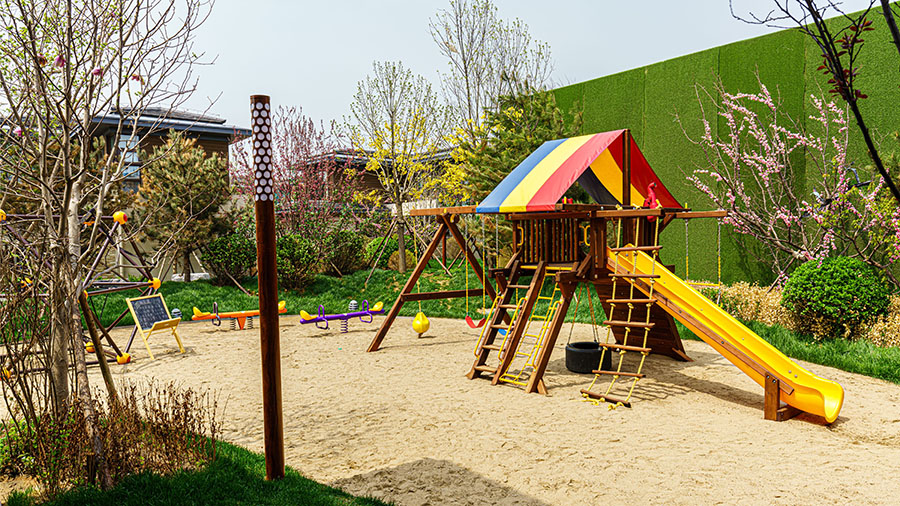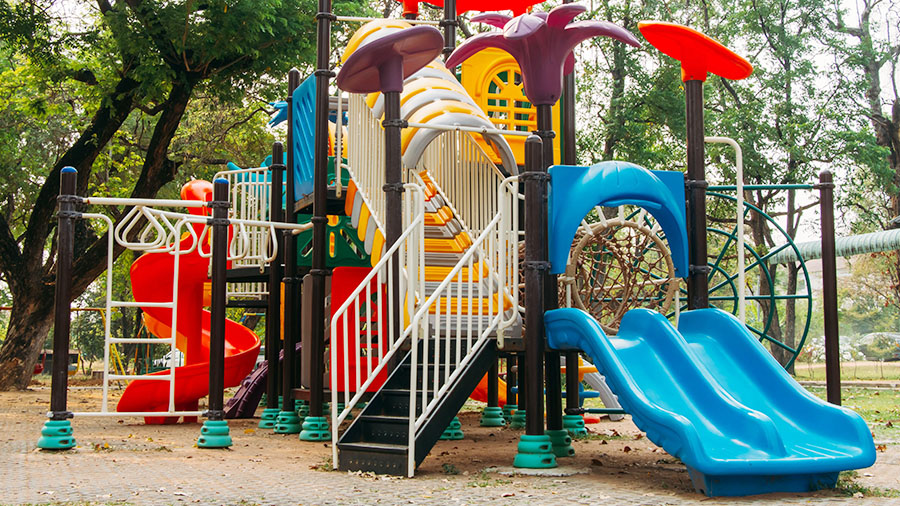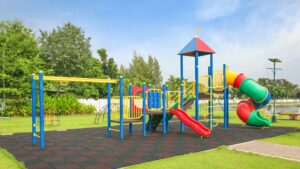1. Safety Standards and Certifications
Ensuring that outdoor slides comply with recognized safety standards is non-negotiable for public playgrounds and commercial installations. The Consumer Product Safety Commission (CPSC) recommends adherence to its Public Playground Safety Checklist, which references ASTM specifications for equipment design and surfacing
Look for ASTM F1487 certification, which specifically covers playground slide performance requirements, including structural integrity and proper slide pitch. Additionally, verify IPEMA (International Play Equipment Manufacturers Association) product certification to confirm third-party testing for both equipment and surfacing materials. These certifications demonstrate a manufacturer’s commitment to comprehensive safety and accessibility (e.g., ADA compliance via ASTM F1951).

2. Material Quality and Durability
High-quality materials ensure your slides withstand UV exposure, temperature fluctuations, and heavy usage over years. High-Density Polyethylene (HDPE) is a preferred plastic for slide chutes, offering excellent UV resistance and impact strength. For supporting structures, galvanized steel with a durable powder-coat finish prevents corrosion and maintains structural integrity.
Inspect how manufacturers source raw materials and confirm they perform accelerated aging tests to simulate sun, rain, and wear conditions. Quality suppliers will provide material data sheets (MDS) and independent lab reports demonstrating compliance with ASTM F1292 (impact attenuation for surfacing) and ASTM F1487 (equipment).
3. Customization and Design Flexibility
B2B clients often require slides tailored to specific themes, capacities, or space constraints. Evaluate a supplier’s design portfolio and case studies to gauge their ability to deliver custom shapes, colors, and integrated branding.
Key questions to ask:
- Can they accommodate unique height or length specifications?
- Do they offer in-house engineering support for structural modifications?
- What design software do they use (e.g., CAD, 3D rendering)?
Manufacturers with robust design teams will collaborate effectively with you to produce slides that align with your project vision.

4. Price Structure and Total Cost of Ownership
While initial unit price is important, the total cost of ownership (TCO)—including maintenance, refurbishment, and expected lifespan—provides a more accurate financial picture.
Consider:
- Volume discounts for large orders.
- Warranty terms covering chutes, supports, and hardware.
- Installation services and whether they charge separately.
- Anticipated maintenance costs, such as resurfacing or part replacements.
A transparent supplier will offer a detailed cost breakdown, helping you forecast long-term budgetary needs.
5. Production Capacity and Lead Times
Timely delivery is crucial for large-scale B2B installations. Confirm the manufacturer’s annual production capacity and typical lead time from order confirmation to shipment playgroundprofessionals.com.
Verify:
- Whether they have buffer stock of standard models.
- Their flexibility in ramping up production for urgent projects.
- Impact of seasonal demand on manufacturing schedules.
A supplier with diversified manufacturing sites can mitigate risk and ensure on-time delivery despite global supply chain disruptions.

6. After-Sales Support and Warranty
Strong after-sales support builds long-term partnerships. A reputable manufacturer will provide:
- Comprehensive warranties (e.g., 5–10 years on structural components).
- Spare parts availability, with straightforward ordering processes.
- Technical assistance for installation and field maintenance.
- Field inspection services by certified safety inspectors (CPSI) to advise on proper upkeep.
Ensure service level agreements (SLAs) clearly outline response times for support requests and part shipments.
7. Corporate Reputation and Compliance
Finally, assess the manufacturer’s overall reputation:
- Client testimonials and reference projects.
- Industry recognition, such as awards from playground associations.
- Sustainability practices, including use of recycled materials or eco-friendly processes.
- Compliance with international trade regulations and export capabilities.
A well-established supplier with positive industry standing and robust corporate governance will be a reliable long-term partner.

Call to Action
Ready to find a trusted outdoor slide manufacturer for your next project? Contact us today or download our supplier evaluation checklist to streamline your selection process.




